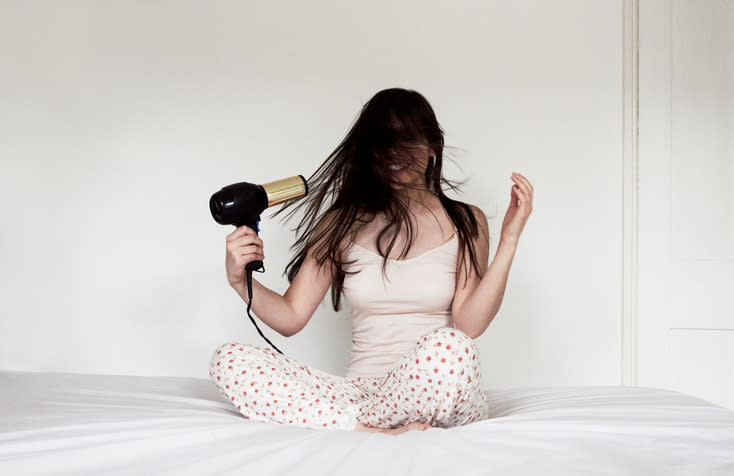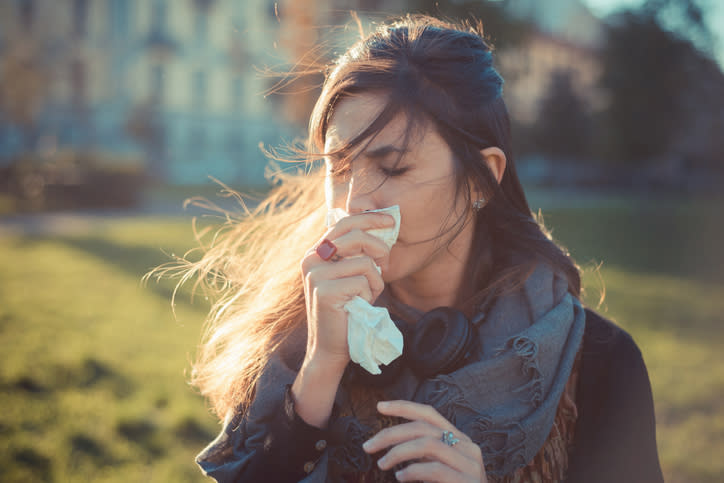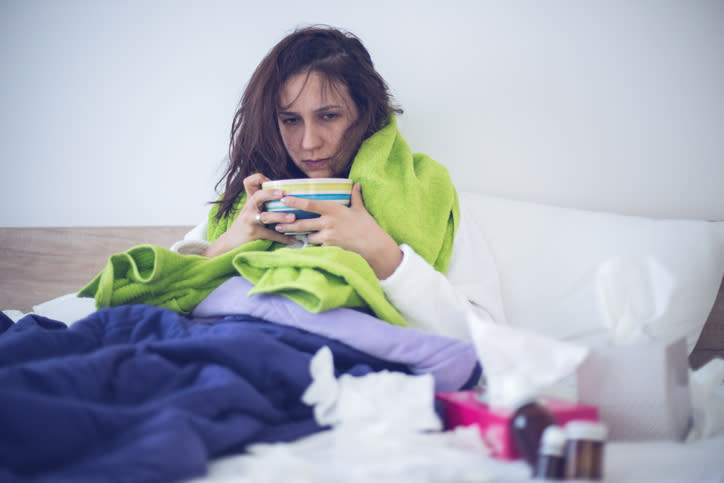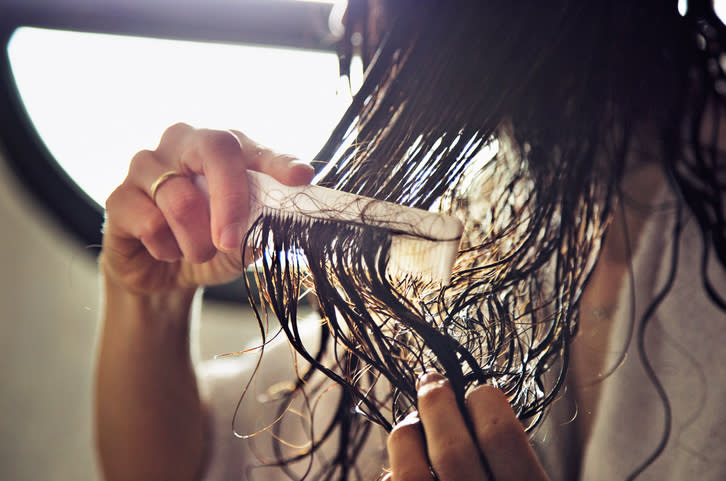6 cold weather health myths that are completely wrong

[Photo: Getty]
Mum is still the first person that many of us call on when we feel the snuffles coming on, but her health tips might not always match doctor’s orders.
These are the old wive’s tales you need to watch out for this winter.
Being out in the cold gives you a cold

[Photo: Getty]
Your nan’s advice to wrap up ‘in case you catch your death’ is sensible, but the idea that viruses originate from your body’s temperate is a lot more complex than many of us believe.
“Colds are the result of catching a virus and not going out in the cold weather,” explains Dr Ross Perry, clinical director of Cosmedics. “Cold viruses are more common in the winter months and hence people often wrongly think that this will cause you to catch the virus.”
According to Dr Dinesh Silva of Doctaly, the reason colds are more prevalent in winter is because cold viruses thrive at lower temperatures.
“Recent research has shown that cold weather may improve the effectiveness of the virus to multiply and at the same time also suppress our immune system,” he says.
However, Dr Hugh Coyne of Doctify says that your nan may have had a point, though not necessarily in the way that she thought.
He explains: “Researchers have found that chilling people’s feet in cold water can trigger a cold. It is thought this occurs because some people carry the cold virus in their noses without having any symptoms and that the exposure to cold reduces the natural defences of their upper airways.”
Vitamin C gets rid of colds

[Photo: Getty]
We’ve all dosed up on OJ (or a vodka and orange during the party season) to battle a cold.
Is this an effective remedy? According to Dr Silva, the answer is no.
“There is no conclusive evidence that vitamin C helps prevent or treat a cold,” he says. “More recently there have been a few studies showing that zinc supplements may shorten the duration of the common cold by a couple of days.”
Zinc can be found in meat, bread, shellfish and dairy foods like cheese.
Starve a fever, feed a cold

[Photo: Getty]
A cold may feel like the perfect excuse to nosh on a chocolate orange (vitamin C, right?) but, unfortunately, this is another old wive’s tale.
Boots pharmacist Angela Chambers explains: “The key thing when you are fighting a virus is to keep hydrated and eat small, regular amounts of nutritious food where possible to provide the energy your body needs to fight the virus.”
Don’t go outside with wet hair

[Photo: Getty]
Leaving for work without making use of the hair dryer is another way many of us think we put ourselves at risk of getting a cold.
Fortunately for anyone who wants another 10 minutes in bed, viruses just don’t work that way.
“Although several of the viruses that cause colds and flu flourish in cold weather you won’t catch a cold simply by having wet hair,” advises Dr Coyne. “The most important way to prevent getting a cold is encouraging people to wash their hands and to cough or sneeze into the crook of their elbow.”
The flu jab can give you flu

[Photo: Getty]
The flu jab won’t be the highlight of your Christmas but, according to Dr Silva, there is no need to fear that it will actually infect you with a virus.
“The flu jab is an inactivated vaccine making it impossible to catch the disease from the jab,” he says. “The jab is meant to evoke an immune reaction which is why some people have a short period of feeling “fluey” just afterwards which is usually just for a couple of days at worst.”
Alcohol will keep your body warm on a chilly night out

[Photo: Getty]
The cocktail coat is the Autumn/Winter statement piece of choice for many of us. Is that fuzzy feeling for real?
“Although alcohol may give you the feeling of being warmer it actually reduces body temperature,” explains Dr Coyne. “This occurs because alcohol dilates the blood vessels which makes your skin feel warm. Unfortunately, the dilated blood vessels on the surface of the skin mean that we lose heat more quickly. Alcohol also impairs our ability to shiver making it particularly unhelpful in cold weather.”
Though being cold may not automatically give you a cold, Angela Chambers warns that it can still prove harmful to your health.
She explains: “If you are not dressed for the weather, your body core temperature can drop, this may not be good for the immune system and can lead to hypothermia in extreme weather.”
Looks like it’s time to shell out a pound for the cloak room.


